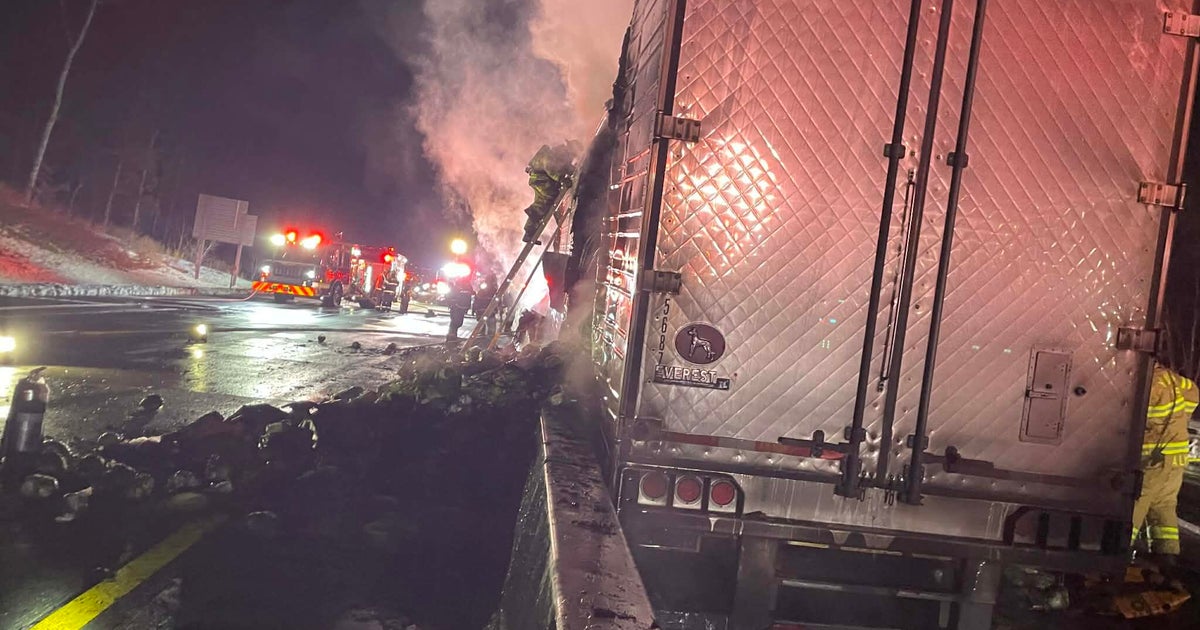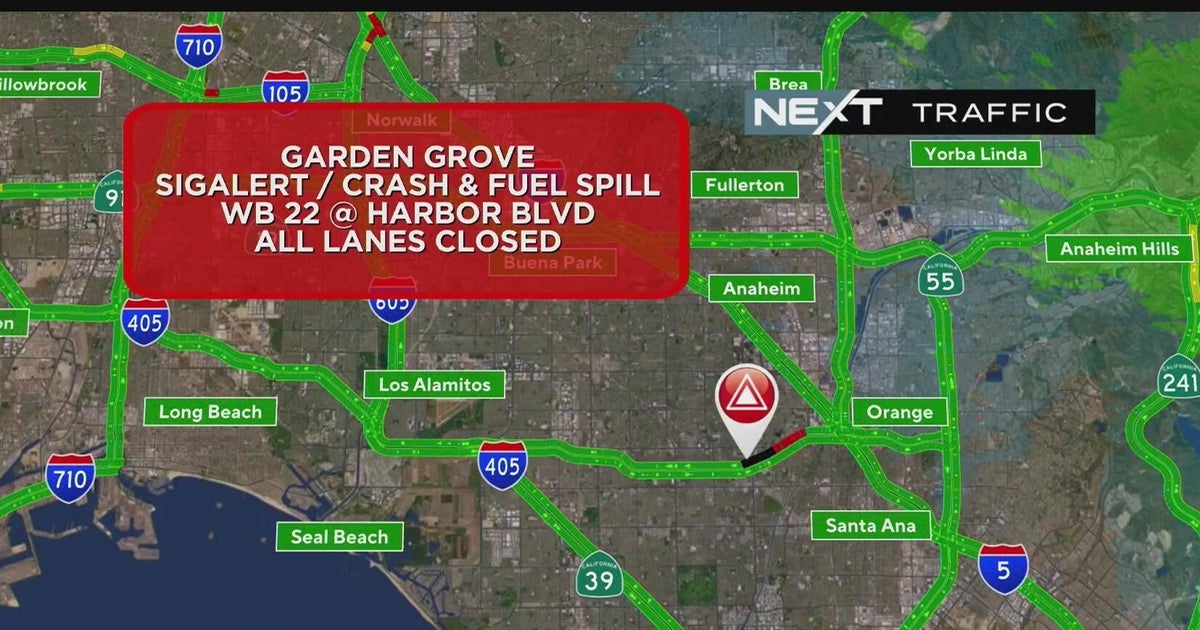Biologists Work To Save Turtles Washed Up On Cape
QUINCY (CBS) -- "Many of these animals are in critical condition," says Connie Merigo, of the New England Aquarium, as she cleans the wounds on one of 77 Kemp's ridley turtles.
Since last Wednesday, nearly 100 of the endangered animals have washed up on Cape Cod beaches, all of them on the bay-side.
It happens every year, but not so many all at once as has happened this year.
WBZ-TV's Bill Shields reports.
"One theory," says Tony LaCasse, of the Aquarium, "is that they come up here on the Gulf Stream from the Gulf of Mexico every summer, to feed on crabs around Nantucket Sound. Then, in September, when the water starts cooling off, they head south but a number of them get caught in a current that runs north to the tip of Provincetown. Then, the turtles are trapped in Cape Cod bay."
The Aquarium has converted an old factory building at the Fore River Shipyard into a kind-of emergency room for ocean animals. And right now, all of their holding tanks are full of ridley turtles.
"They're suffering from hypothermia," says Merigo. "And it's just like when a human fall through the ice, they can't use their muscles properly, and their hearts slow down. So we're getting them back to speed, so they can be shipped south."
In the early 1900's, there were tens of thousands of Kemp's ridley turtles, nesting on the beaches of South Texas and Mexico. But a number of factors, mainly human, that cut their numbers to what they are today: less than 20,000.







